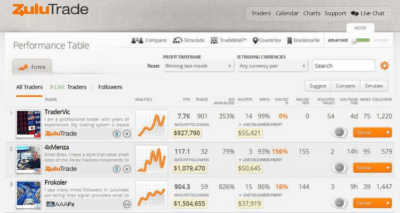Contents
The Commission, based on the Fact Finding Officer’s reports, noted in the NPRM that these were potentially valuable ideas, but they were not intended to be the only ideas. The second application of the incentive principle discussed in the rule is empty container return. The rule states that absent extenuating circumstances, practices and regulations that provide for imposition of detention when it does not serve its incentivizing purposes, such as when empty containers cannot be returned, are likely to be found unreasonable. The Commission explained that such practices, absent extenuating circumstances, weigh heavily in favor of a finding of unreasonableness, because if an ocean carrier directs a trucker to return a container to a particular terminal, and that terminal refuses to accept the container, no amount of detention can incentivize its return.

The UIIA, for instance, requires equipment providers to provide truckers documentation reasonably necessary to support invoices, whereas in other situations the UIIA requires the trucker to provide documentation supporting a claim. OCEMA at 6 (“OCEMA has long supported the notion of clarity and accessibility with regard to detention and demurrage practices.”). 292.E.g., Transworld Logistics Shipping Servs., Inc. at 3 (“It must be mentioned here that the arrival notice which is a courtesy information cannot be confused or construed to replace a cargo availability notice.”).
Trade Adjustment Assistance
The NPRM merely proposed that one factor that the Commission may consider in combination with other factors in the reasonableness analysis is how terms are used in light of how they are used elsewhere. The Commission, by issuing this guidance, is not requiring regulated entities to change their current terminology, and the primary consideration when it comes to the clarity of terminology would be the definitional documents themselves. Moreover, this guidance does not mean that the Commission would find a section violation simply because an ocean carrier or marine terminal operator changed its terminology. The Commission is capable of distinguishing between a regulated entity simply changing its terminology, which would in most cases would not raise any issues, and a regulated entity using its own terminology inconsistently.
The Commission said that marine terminals only had to pay a fee when delays were within their control. Here, however, it is shippers, intermediaries, and truckers who are arguing that they should not have to pay a fee due to delays outside their control. In other words, Trucker Lighter does not stand for the proposition that marine terminal operators can impose fees when delays are outside of their control. Demurrage and detention disputes, are likely to fall on the unreasonable end of the spectrum.” The Commission then listed examples of ideas proposed by shippers and truckers that could be incorporated into dispute resolution policies.

This case did not discuss Volkswagenwerk, however, and pre-dated Distribution Services. Moreover, the context was very different. Truck Lighter in involved truck detention. In contrast to the issues here, at the time, marine terminals were required to compensate truckers for delays. 12 F.M.C. at 170 (requiring adoption of a rule that “will compensate the truckers for unusual truck delays caused by or under the control of the terminals”).
Disaster Declarations & Assistance
This would include arguments and evidence that demurrage and detention have purposes other than as financial incentives. The Commission issued the rule after a hearing on a petition and a Fact Finding Investigation. It did so after determining that guidance in the form of a non-exclusive list of factors will promote fluidity in the U.S. freight delivery system, mitigate confusion, reduce and streamline disputes, and enhance competition and innovation in business operations and policies. As noted by the petitioners in Docket No. P4-16, guidance will help regulated entities avoid incurring liability under section and will encourage shippers, intermediaries, and truckers to examine their practices as well. Leaders Ass’n at (“Similarly, where shippers and carriers have agreed to credit terms as a part of an existing, contracted business relationship, there is no basis for requiring advance payment of all charges prior to release of cargo”).
Those concerns militate in favor of the Commission keeping “notice” as a factor in its guidance. In applying this factor, the most important consideration is the extent to which any notice is calculated to apprise shippers and their agents that a container is available for retrieval. The Commission explained that the type of notice is important—types of notice that are expressly infinox leverages linked to cargo availability weigh favorably in the analysis—and listed examples. The Commission also noted the merits of “push notifications” of cargo availability, notifying users of changes in container availability, linking free time to notice of availability, and appointment guarantees. The Commission stopped short, however, of specifying any particular form of notice.
The Commission avoided doing so because it did not want to inhibit stakeholders from developing new and better practices. Consequently, even if the differences between section 17 of the 1916 Act and section removed some broke millennial Commission authority, the present rule is not implicated. The following docket codes may serve as triggering docket codes for convicted felon notification. See Convicted Felon Notification in the SCOMIS manual.

The Judge/Commissioner ID or Department Numbers are created by AOC Customer Services at the request of a local court. Warrant of Arrest (Changes case management status, see Note 1 below.) Cases with this code display in JIS case history with a warrant status of I . Sheriff’s Return on A Bench Warrant (Changes case management status, see Note 1 below.) Cases with this code display in JIS case history with a warrant status of N . Order Quashing Warrant Of Arrest (Changes case management status, see Note 1 below.) Cases with this code display in JIS case history with a warrant status of N . Order Quashing Bench Warrant (Changes case management status, see Note 1 below.) Cases with this code display in JIS case history with a warrant status of N . Order for Warrant (Changes case management status, see Note 1 below.) Cases with this code display in JIS case history with a warrant status of O .
D. Applicability and Scope of Rule
And, while those cases allowed ocean carriers to recover certain costs, as noted above, the rule does not preclude the Commission from considering whether demurrage and detention have some compensatory aspect when determining the reasonableness of specific practices in individual cases. Ocean carriers and marine terminal operators further urge the Commission to reaffirm that notwithstanding the rule, the principle of “once-in-demurrage, always-in-demurrage” still governs. According to these commenters, under this principle shippers “bear the risk of any disability that arises after free time has ended.” In other words, once free time ends, it would not be unreasonable to impose demurrage on a shipper even if the shipper is unable to retrieve the container due to circumstances outside the shipper’s, or anyone’s, control. Conversely, other commenters request that the Commission expressly overrule the once-in-demurrage, always-in-demurrage principle.
- Bench Warrant (Changes case management status, see Note 1 below.) Cases with this code display in JIS case history with a warrant status of I .
- Finally, they argue that ocean carriers and marine terminal operators incur costs during government inspections, and those costs are most appropriately allocated to shippers because they are the only ones with any control of whether inspections happen and how they proceed.
- Therefore, the APA did not require publication of a notice of proposed rulemaking in this instance, and the Commission is not required to prepare a FRFA.
- Sorted alphabetically by description.
Nothing in this rule precludes the Commission from considering factors, arguments, and evidence in addition to those specifically listed in this rule. Second, the Commission must be careful not to encroach into the jurisdiction of other agencies, such as the Surface Transportation Board, which is itself considering issuing guidance to railroads similar to that in the Commission’s rule. Set caps on the levels of, or total amount of, demurrage or detention that may transfomrs be charged. Guidance, the specificity of guidance, the consequences of guidance, and the Uniform Intermodal Interchange and Facilities Access Agreement. Promote the growth and development of United States exports through competitive and efficient ocean transportation and by placing a greater reliance on the marketplace. The Public Inspection pageon FederalRegister.gov offers a preview of documents scheduled to appear in the next day’s Federal Register issue.
Related to Termination for Breach by AGTC
That said, the Commission is amending the final rule to recognize that the demurrage and detention might have other purposes. First, the Commission is adding the word “primary” to the “Incentive Principle” paragraph of the rule. Second, the Commission is adding a new “Non-Preclusion” paragraph of the interpretive rule, which confirms that the Commission may consider additional factors, arguments, and evidence in addition to the factors specifically listed in the rule.
The Commission notes, however, that the standard UIIA agreement requires equipment providers to invoice motor carriers for “Per Diem, Container Use, Chassis Use/Rental and/or Storage Ocean Demurrage charges within sixty days from the date on which the Equipment was returned.” UIIA § E.6. 362.E.g., Int’l Fed. of Freight Forwarders Ass’ns at 5 (noting that once a merchant pays an ocean carrier, the carrier has “no motivation to look into such disputes delaying related refunds unreasonably” and that a more reasonable practice would be to suspend payment of disputed charges pending resolution of the dispute); Mondelez Int’l at 2; Transp. Intermediaries Ass’n at 5. OCEMA at 6 (“As noted in the NPRM, OCEMA has encouraged its members to publish their demurrage and detention policies and related dispute resolution processes either directly or via link on the OCEMA website.”). Final Report at 18-20, 27-28; Interim Report at 9, 18; 84 FR at (“The more these factors align with the goal of moving cargo off terminal property, the less likely demurrage practices would be found unreasonable.”).
Termination for Breach by AGTC Sample Clauses
Mohawk Global Logistics at 7; S. Truckers likely have commercial and other incentives to return equipment in a timely fashion. It may be true that some “importer-consignees operate on small margins of profit, and because public warehouse charges are generally higher than demurrage charges, some consignees tend to use the piers as warehouses.” NYII, 9 S.R.R. at 864. But this possibility is insufficient reason to ignore the incentive principle. This should allay some of the concerns raised by commenters like the American Association of Port Authorities that the rule would prevent marine terminal operators from being compensated for use of terminal space. Ass’n of Port Auth.
Ocean carriers and marine terminal operators argue that it is permissible to treat government inspections differently under Commission precedent. They also argue that to extend free time during government inspections or to not charge demurrage and detention during them disincentivizes shippers, for instance, to properly submit paperwork. Finally, they argue that ocean carriers and marine terminal operators incur costs during government inspections, and those costs are most appropriately allocated to shippers because they are the only ones with any control of whether inspections happen and how they proceed.


